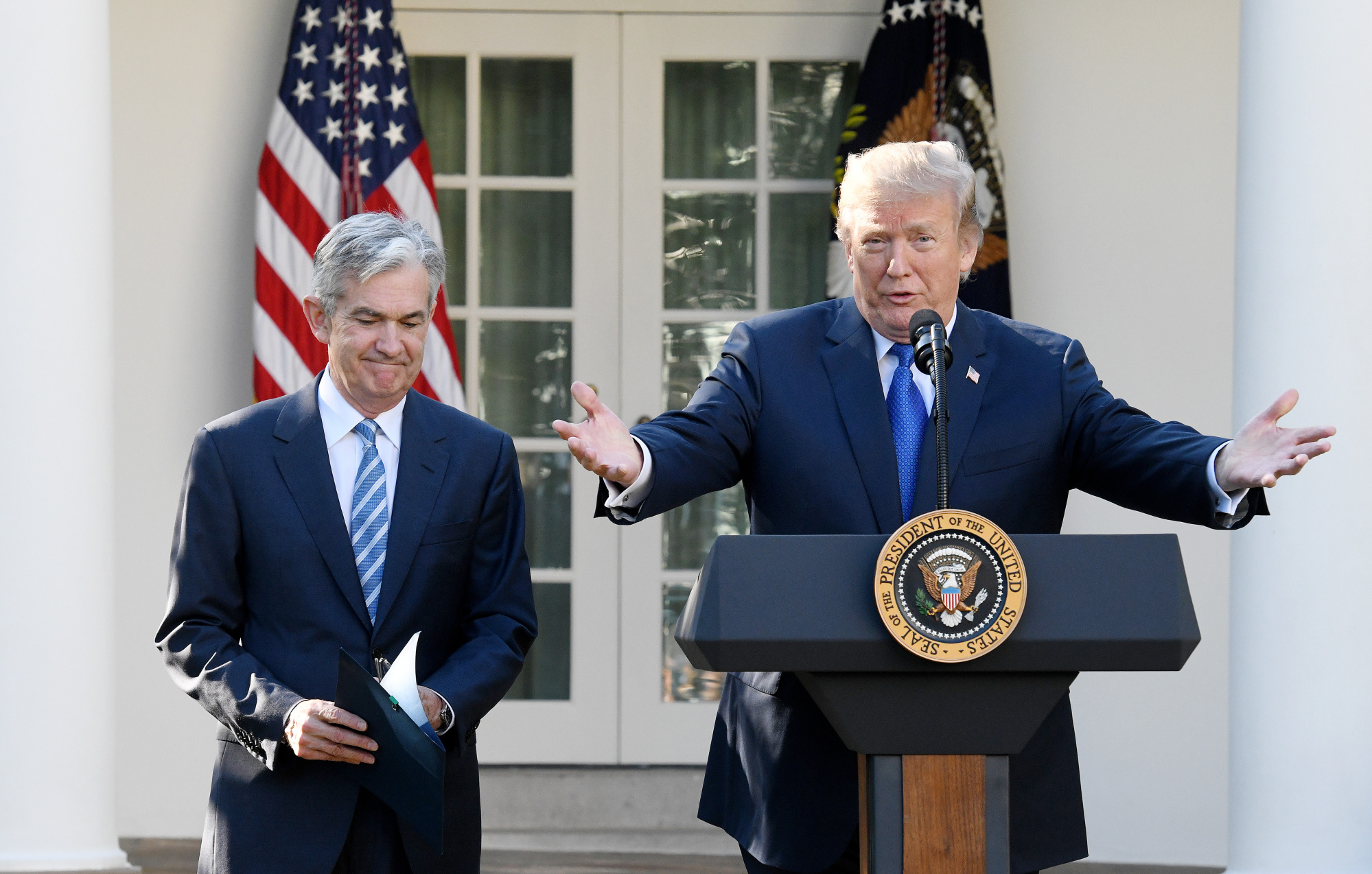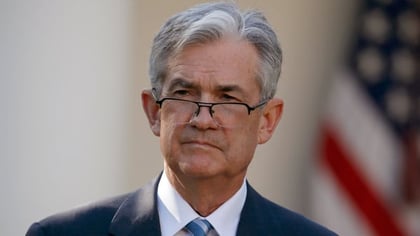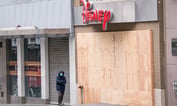 Fed Chair Jerome Powell and President Donald Trump at the White House. (Photo: Bloomberg/Olivier Douliery)
Fed Chair Jerome Powell and President Donald Trump at the White House. (Photo: Bloomberg/Olivier Douliery)
The Federal Reserve issued a stark warning Friday that stock and other asset prices could suffer significant declines should the coronavirus pandemic deepen, with the commercial real estate market being among the hardest-hit industries.
The Fed made the assertion in its twice-yearly financial stability report, in which it flags risks to the U.S. banking system and broader economy.
The document highlighted the central bank’s race to intervene in markets and temporarily dial back regulations on financial firms in response to the Covid-19 crisis.
“Asset prices remain vulnerable to significant price declines should the pandemic take an unexpected course, the economic fallout prove more adverse, or financial system strains reemerge,” the Fed said in the report.
It cited commercial real estate as being particularly susceptible to falling valuations because “prices were high relative to fundamentals before the pandemic,” and there have been severe disruptions in the hospitality and retail industries.
Though regulations put in place after the 2008 financial crisis have helped make Wall Street more resilient, vulnerabilities in the financial system still worked to amplify the economic shock from the virus, according to the report.
The review also found that “prices of commercial properties and farmland were highly elevated relative to their income streams on the eve of the pandemic, suggesting that their prices could fall notably.”
Abrupt Shutdown
The abrupt shutdown of the global economy triggered uncertainty in financial markets that upended trading in everything from Treasury securities to junk bonds and caused dramatic swings in stock prices.
Markets settled down as the Fed flooded the financial system with liquidity, but Chairman Jerome Powell said in a speech this week that the economy still faces unprecedented risks if fiscal and monetary policy makers don’t continue to act.
“Additional fiscal support could be costly, but worth it if it helps avoid long-term economic damage and leaves us with a stronger recovery,” Powell said in remarks for a virtual event hosted by the Peterson Institute for International Economics.








 May 15, 2020 at 06:05 PM
May 15, 2020 at 06:05 PM












 Copyright © 2024 ALM Global, LLC. All Rights Reserved.
Copyright © 2024 ALM Global, LLC. All Rights Reserved.